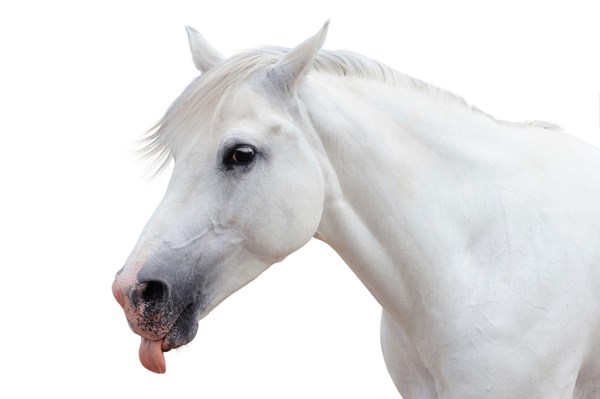 Credit: Thinkstock Palatability is important to get horses to eat and drink.
Credit: Thinkstock Palatability is important to get horses to eat and drink.Whether they are ill or just plain old finicky, horses that have a decreased intake of food or water are at risk for colic. One potential way to encourage feed and water intake, and even facilitate administration of oral medications, is to flavor those items.
“Palatability is very important for sick horses, especially if you want to encourage water intake and keep sick horses eating and drinking normally,” affirmed Bryan Waldridge, DVM, MS, DACVIM, head veterinarian at Kentucky Equine Research (KER).
But what flavors do horses prefer?
A pair of Canadian researchers* recently explained, “Past research has shown a preference by mature horses for water sweetened with sucrose and rejection of sour taste.” They noted that horses showed an aversion to bitter water, but that the bitterness could be masked by adding a sweet substance to the water.
To further explore this topic, the researchers offered five adult horses the following, in a random order:
- Tap water (control);
- Water with sucrose (sugar);
- Water with citric acid (a sour substance); or
- Water with both citric acid and sucrose.
Not surprisingly, horses again rejected the sour water; however, inconsistent with some previous findings, they also unexpectedly rejected the sweetened water. This study also found that individual preference did occur–three of the five horses included in this study rejected anything but tap water.
Age-related taste preferences were also reported in a previously published study: adult horses had a weak preference to sweetened water, whereas weanlings had a moderate preference to sweetened water.
Mike Lennox, BS, director of formulation and quality control at KER, added, “ Horses are unlike humans in that humans search out and enjoy novel flavors, but horses tend to stay with what they are used to. This highlights the importance of making feed changes gradually.”
*Merkies, K., Bogart, E. Discrimination of sour and sweet solutions by mature horses. J. Eq. Vet. Sci. 2013;33:321-99.
Visit equinews.com/newsletters to subscribe to The Weekly Feed, KER’s award-winning equine nutrition newsletter.


